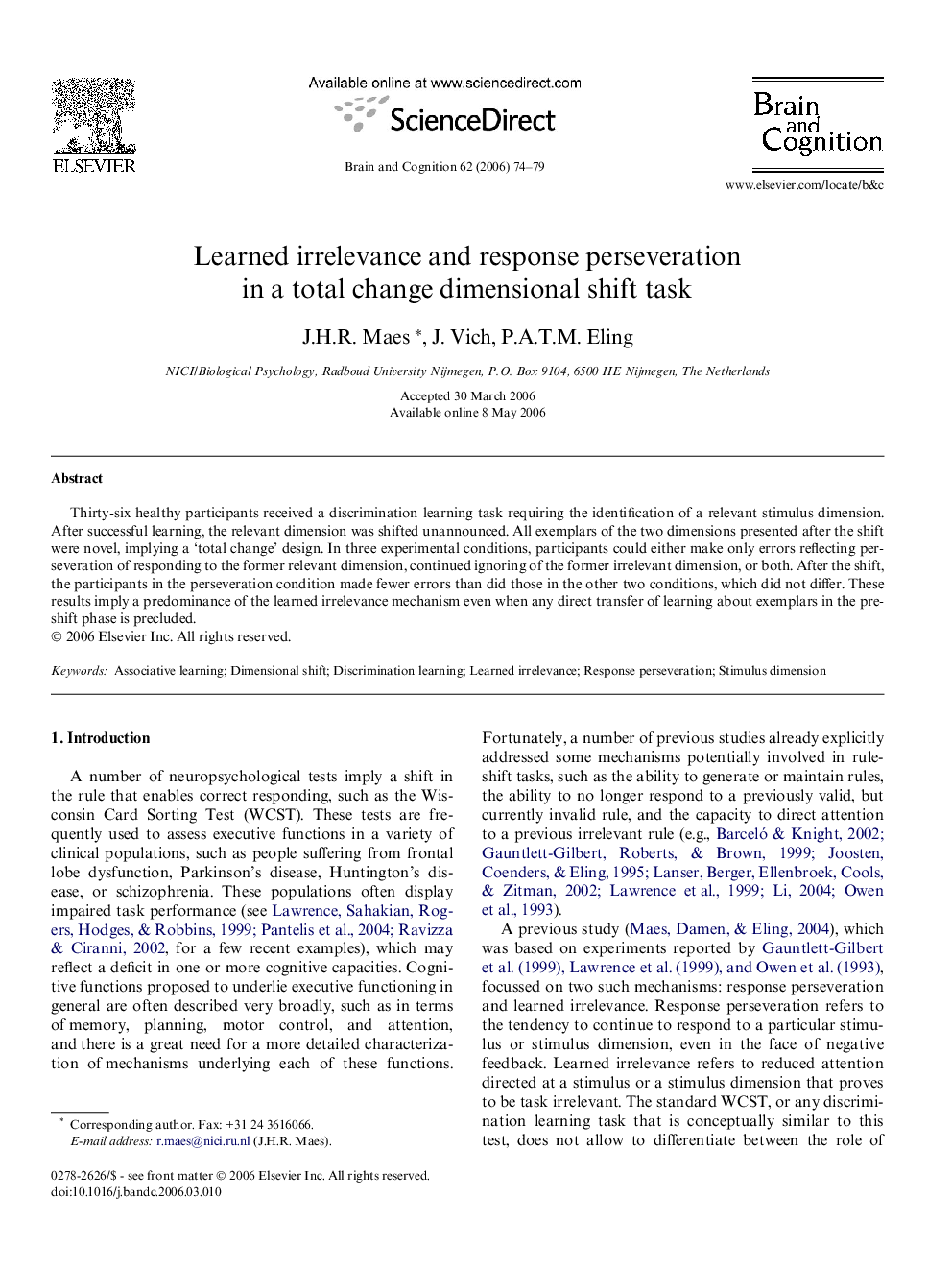| Article ID | Journal | Published Year | Pages | File Type |
|---|---|---|---|---|
| 925122 | Brain and Cognition | 2006 | 6 Pages |
Thirty-six healthy participants received a discrimination learning task requiring the identification of a relevant stimulus dimension. After successful learning, the relevant dimension was shifted unannounced. All exemplars of the two dimensions presented after the shift were novel, implying a ‘total change’ design. In three experimental conditions, participants could either make only errors reflecting perseveration of responding to the former relevant dimension, continued ignoring of the former irrelevant dimension, or both. After the shift, the participants in the perseveration condition made fewer errors than did those in the other two conditions, which did not differ. These results imply a predominance of the learned irrelevance mechanism even when any direct transfer of learning about exemplars in the pre-shift phase is precluded.
